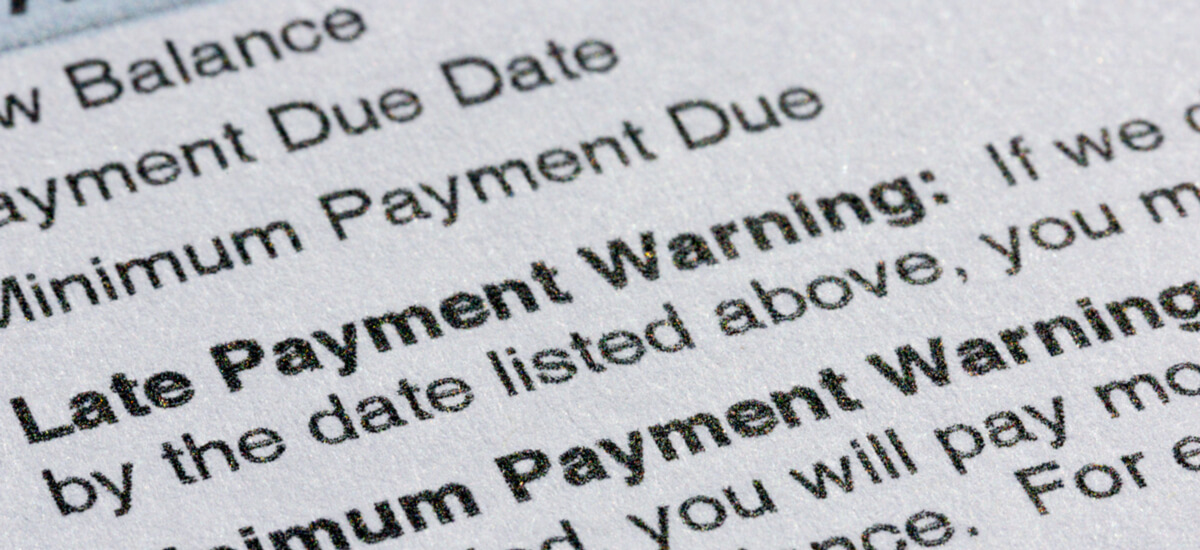How to Invest in Commercial Property in the UK in 2026
Learn the essentials of how to invest in commercial property in the UK as a US investor.

Late fees can encourage on-time payment and lessen the impact of late payments on your cash flow. But charging late fees can be daunting for many business owners.
Using the correct invoice late fee wording is essential when collecting late fees. Clear late fee wording maintains a professional appearance, avoids confusion, and can prevent offending any customers. It can also help you get paid faster.
This guide will cover: Late fee wording, how to charge late fees, if you should charge them, and what rate to charge.
| This piece has been written in collaboration with Esther Friedberg Karp, an esteemed bookkeeper and QuickBooks ProAdvisor. |
|---|
It is important to include late fees when issuing an invoice. This gives legal ground for charging and pursuing invoice payments. It can also encourage prompt payment.
Invoice late fees are usually included in the ‘terms’ section of the invoice. The invoice payment terms should detail when late fees are due and the rates applied.
A simple example late fee phrase could be:
“Invoice payment is due within 30 days. Please be advised that we will charge 1% interest per month on late invoices.”
If a customer is late paying an invoice, you can then follow up with a late fee letter. The late fee letter should be polite, accurate, informative, and based on the terms in the original invoice.
Some things to include in the late fee wording are:
The wording of the late fee terms should be simple and brief. It is also good practice to attach a copy of the original invoice, for the customer’s reference.
| 🔍 For some example late fee letters, you can also read the guide to past due invoices. |
|---|
Companies often wonder how they can charge fees for late payment of invoices. Legally, you can charge late fees if notice has been given on the original invoice.
Clear late payment terms should be included on the invoice. It is then up to the company to decide whether to charge from a customer relationship point of view.
Yes, late payment fees are legal, if the late fee terms are properly included in the original contract/invoice. Rules, limits, and other regulations are set in law under the Prompt Payment Act in the US.¹
Similar legislation is in place in other countries. In the UK, for example, it is controlled by the Late Payment of Commercial Debts (Interest) Act 1998.²
| 💡 Using a professional invoice template is an easy way to ensure you include the payment terms and late fees. You can download free, professional invoice templates from Wise. |
|---|

Late payment of invoices can be a significant problem for cash flow management.
Research carried out by Atradius showed that 55% of all B2B invoiced sales were overdue in 2023. US companies also experienced an upward trend in late payments.³
Invoice late fees can motivate customers to pay on time, and compensate the business for any negative effect on the cash flow.
That said, just because you can charge late fees doesn’t mean you always should. Prevention, of course, is the best strategy. Including the late payment terms clearly on the invoice should provide an incentive for on-time payment.
Whether to charge a customer is a business decision. You should take into account any special circumstances, previous history, and customer relationship.
It’s a good idea to check why payment has not been received before sending a late fee letter. There could be a problem with the invoice, or products and services delivered. The customer may face other circumstances - such as temporary financial problems.
Losing a good customer over a late payment fee may be excessive. It could be better to preserve the relationship and not charge late fees.
If you do charge late fees, however, make them easy to pay. As with the original invoice, you can include payment methods in the late fee notification.
With overseas customers, this should include international payment options. Using a service such as Wise will allow customers to pay in their own currency, with clear exchange rates set at the mid-market rate.
This is an important question. Just as the terms should be specified on the original invoice, the amount charged must also meet legal requirements.
The maximum fee varies among countries and US states.
Of course, you do not have to charge the maximum fee. How much to charge is a decision based on the laws that apply in your area, the customer relationship, and the impact of the late payment.
According to research by QuickBooks, many companies choose a monthly fee of 1% to 1.5%.⁶ You could charge less than this range, or more, if local law permits.

The legal maximums are specific annual interest rates, but it is usual to charge interest monthly. Hopefully, late payments will not reach a full year!
This monthly rate is the one usually specified in the invoice late payment terms. To calculate the maximum legal permitted, simply divide the annual legal maximum by 12.
As an example, consider the case for California. The annual legal maximum of 12% equates to a monthly maximum of 1%. For an invoice of $1000 that is one month late, this would mean a late payment fee of $10.
If you’re going to use late fees, make sure that the calculation of those fees is clear.
In the case of a 1% per month fee, in the example above, the balance due would be $1,010 after one month.
But what if your customer is even later, and after two months the invoice is still unpaid? Is the 1% late fee for the second month going to be applied to the original invoice amount of $1,000 or the accumulated balance of $1,010?
If it’s the latter, you’re charging compound interest. If you want to do this, make sure that compound interest for late fees is allowed in the jurisdictions/countries involved. This is especially vital when doing international business - compound interest is either limited or prohibited in many countries.⁷
Assuming that compound interest is allowed, make sure that your terms spell out the fact that it is indeed compound interest.
Ensure that the policy and rate are understood by your customers by putting this information on your invoices and other correspondence.
Invoice late fee wording can help you charge late fees and get paid. In an ideal world, however, late fees are best avoided.
You can minimize the need to charge late fees by making it easy for customers to pay invoices.
Research from Inc. Magazine shows that companies are 30% more likely to get paid if they offer easy online payment.⁸
For international customers, easy payment includes giving them the option to pay online in their local currency. Wise Business makes this possible.
Create a Wise account to get paid with ease
Wise offers a business account that allows you to get paid in multiple currencies - all to the same account. It also links to payment gateways, such as Stripe, making it even easier to receive payments for your business.
Make a Wise choice and register today.
| 💡 For all you need to know about invoices, don't forget to read and bookmark the ultimate guide to invoicing from Wise! |
|---|
 |
|
Sources:
All sources checked June, 2024.
*Please see terms of use and product availability for your region or visit Wise fees and pricing for the most up to date pricing and fee information.
This publication is provided for general information purposes and does not constitute legal, tax or other professional advice from Wise Payments Limited or its subsidiaries and its affiliates, and it is not intended as a substitute for obtaining advice from a financial advisor or any other professional.
We make no representations, warranties or guarantees, whether expressed or implied, that the content in the publication is accurate, complete or up to date.

Learn the essentials of how to invest in commercial property in the UK as a US investor.

Compare Mollie vs Stripe to find the best payment gateway for your business. Our guide covers fees, features, and integrations to help make the right choice.

Find out how to open an IBAN account with our step-by-step guide. Understand the requirements, benefits, and best practices.

Explore the top business bank accounts for international payments in the US. Compare features, fees, and benefits.

Discover how to invest in commercial property with our comprehensive guide.

Understand your tax obligations as a sole proprietor. Essential information and guidance for filing and compliance.